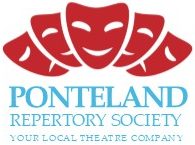CHILD PROTECTION AND SAFEGUARDING POLICY
Ponteland Repertory Society believes that:
- the welfare of the child is paramount
- all children, whatever their age, culture, disability, gender, language, racial origin, religious beliefs and/or sexual identity have the right to protection from abuse
- all suspicions and allegations of abuse should be taken seriously and responded to swiftly and appropriately
- all members and employees of the Society should be clear on how to respond appropriately
- all staff (paid/unpaid) have a responsibility to report concerns to the appropriate officer
- staff/volunteers attend suitable training and understand that it is not their role to decide if abuse has occurred, but to report any concerns to the appropriate authority or colleague.
Ponteland Repertory Society recognises their duty of care under:
- the Children and Young Persons Act 1963
- the Child ( Performances) Regulations 1968
- the Protection of Children Act 1999
- the Criminal Justice and Court Services Act 2000
- the Children’s Act 2004
and all legislation and the provisions of the Department for Education’s updated version of the Statutory Guidance of March 2015 for anyone working with children in England.
The Society will ensure that:
- All children will be treated equally and with respect and dignity
- The welfare of the child will be put first
- A balanced relationship based on mutual trust will be built which empowers the children to share in the decision-making process
- Enthusiastic and constructive feedback will be given rather than negative criticism
- Bullying will not be accepted or condoned
- All adult members of the Society provide a positive role model for dealing with other people
- Action will be taken to stop any inappropriate verbal and physical behaviour
- It will keep up-to-date with Health and Safety legislation
- It will keep informed of changes in legislation and policies for the protection of children
- It will undertake relevant development and training
- It will hold a register, in line with GDPR 2018, of every child involved with the Society and will retain a contact name and number close at hand for emergencies.
Responding to allegations or suspicions
It is not the responsibility of anyone working within the Society, in a paid or unpaid capacity, to decide whether or not child abuse has taken place. However there is a responsibility to act on any concerns by reporting these to the child protection liaison person.
Confidentiality
Every effort should be made to ensure that confidentiality is maintained for all concerned. Information should be handled and disseminated on a ‘need to know’ basis only. This includes the following people:
- The child protection liaison person
- The parents of the person who is alleged to have been abused
- The person making the allegation
Where there is a complaint there may be three types of investigation or even a combination of all:
- a child protection investigation
- a criminal investigation
- a disciplinary or misconduct investigation
Contact details for reporting a complaint:
Ponteland Repertory Society child protection liaison person: Alexander Finlayson-Heap 07526 000288
Education Welfare Officer, Northumberland County Council: Linda Stephenson 01670 622800
Social Services, Northumberland County Council: 01670 624 888
Police Child Abuse Investigation Unit, non urgent 101, urgent 999
This policy will be regularly monitored and reviewed by the Committee of the Society and will be subject to annual review.
Date: 24.10.23
…………………………………………………………………………………
Appendix 1
Information for social services or the police about suspected abuse.
To ensure that this information is as helpful as possible, a detailed record should always be made at the time of the disclosure/concern, which should include the following:
- The child’s name, age and date of birth of the child.
- The child’s home address and telephone number.
- Whether or not the person making the report is expressing their own concerns or those of someone else.
- The nature of the allegation. Include dates, times, any special factors and other relevant information.
- Make a clear distinction between what is fact, opinion or hearsay.
- A description of any visible bruising or other injuries. Also any indirect signs, such as behavioural changes.
- Details of witnesses to the incidents.
- The child’s account, if it can be given, of what has happened and how any bruising or other injuries occurred.
- Have the parents been contacted?
- If so what has been said?
- Has anyone else been consulted? If so record details
- If the child was not the person who reported the incident, has the child been spoken to? If so what was said?
- Has anyone been alleged to be the abuser? Record details.
The name of the person who took the referral should be recorded.
Where possible referral to the police or social services should be confirmed in writing within 24 hours.
